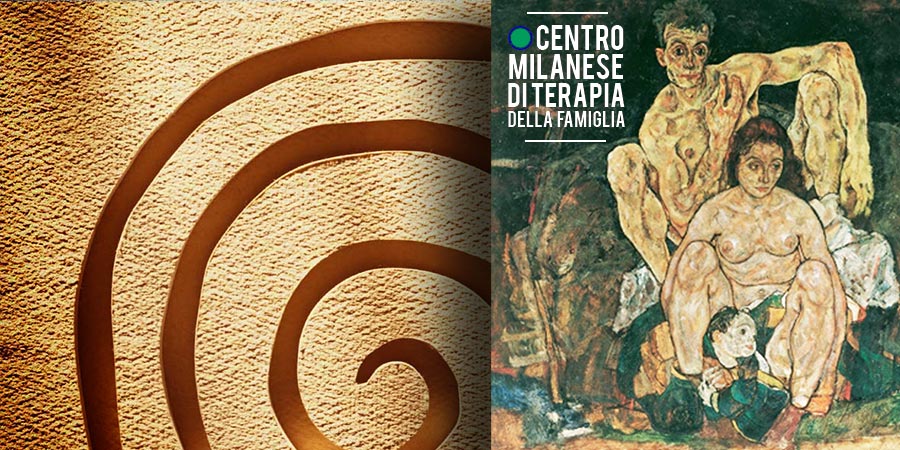Individual Systemic Psychotherapy
At the Milanese Centre of Family Therapy, situated in Via Leopardi 19, Milan, there is an active team of Psychotherapists that address their efforts towards individuals who, for different reasons, find them-selves living an emotional and a relational discomfort.
How is the individual systemic therapy approach actualised?
Twenty years ago Luigi Boscolo together with Paolo Bertrando wrote Individual Systemic Psychotherapy (Psicoterapia sistemica individuale, Raffaello Cortina). The text focused on Boscolo’s long experiential journey, starting from his psychodynamic training, to strategic therapy and through to his final proposal, during that time period, of long-brief therapy: lasting a year and with an encounter or session scheduled every fifteen days so to reach a total of twenty encounters. This proposal was considered as a therapeutic contract; however, the actualisation of the sessions was rather flexible and varied. Recalling an individual session with a young woman, with a diagnosis of bulimia, who at their eighteenth encounter had overcome all her symptoms. In that instance, Boscolo proposed a closing of their therapeutic journey even more so since there were only two encounters left to reach twenty.
The young woman agreed that all her previous symptoms were not present anymore however, she wanted to continue their therapeutic encounters as she did not feel this as the end of her therapeutic journey, she needed more time. Boscolo responded asking her at which encounter she wished to be at that moment. The young woman answered:” at the twelfth” and he answered: “ well, then this is our twelfth encounter”.
A research chronicle
At the end of the nineties, Massimo Giuliani, Pietro Barbetta, Cesare Casati, Giampiero Covelli and others, decided to carry out a qualitative research centred around the follow-ups of psychotherapeutic treatments concluded during the end of the eighties until that moment. Twenty-five strategic psychotherapies conducted in public psychiatric clinics (carried out by Cesare Casati and Giampiero Covelli) and eighteen systemic psychotherapies, individual as well as family encounters, held by Pietro Barbetta in his private studio were selected. Giuliani and others were in charge of carrying out the follow-ups in both the public and private establishments selected. They met the individuals that had concluded one of the two therapeutic journeys with the aim of asking them how they remembered and how their life subsequently unfolded in relation to their therapeutic journeys. The findings revealed that what the psychiatrists termed as an intervention of brief therapy, two sessions that effectively prompt the disappearance of the symptoms in nearly all patients, was actually defined by the patient as: “the first session appeared brutal, but, from the second session each monthly encounter was very positive, I felt listened to”. Meanwhile, the findings concerning the private establishment revealed that two of the individuals had indeed experienced the disappearance of symptoms however, they both felt abandoned shortly after. In both cases the person had a desire to continue their encounters as their symptoms were not the sole reason of their attendance.
In the first scenario, what the patient had described as “therapy” was actually defined by the psychiatrists as “periodic monitoring”. Opposed, to the second scenario, of private practice, where one patients re-contacted the therapist to schedule other sessions.
This research confirms that brief therapy, whether it be Psychodynamic, Strategic or Systemic, does not always work and that the therapist’s insistence on the closing of a therapeutic journey is just like the insistence for continuation when the individual chooses to suspend their therapeutic encounters. Indeed, the first scenario, is an authoritarian termination while the second scenario is an imposition of closure.
Long-brief Therapy
By definition long-brief psychotherapy enables the therapist to listen to the individual and meet them through what in Psychoanalysis is termed as transference and Systemic therapists, under the guidance of Moni Elkaïm, call resonance. Indeed, the meeting half way is enabled by means of the melody that is exchanged during the clinical encounter. Therapy, as an art form, produces melodic, imaginary, events that successively enhance what Gianfranco Cecchin defined as therapeutic curiosity (curiosità terapeutica).
Individual Systemic Psychotherapy, when compared to the extremes of a brief psychotherapy or a lengthy and intense psychoanalysis may be considered as being remarkably attentive in repeatedly, in each and every encounter, renewing both the bond as well as the therapeutic contract, without impositions. The therapist is not an expert that holds power or knowledge rather their role is to rekindle the individual’s desire to take care of them-selves. This is a fundamental ethical principal of our systemic approach. In practice, it is our custom to establish a new appointment at the end of each session, we never say: “ we will meet every Friday at three”. This may be considered as a way to ask for the individual’s consent for the continuation of the encounters as well as way to listen to the needs and desires of the attendees.


Informazioni
Il CMTF è Centro Clinico e ha un équipe di psicoterapeute/i che possono essere contattati sia privatamente, sia contattando il CMTF:
Phone: 02 4815350 | 348.00.32.632
Email:segreteria@cmtf.it



